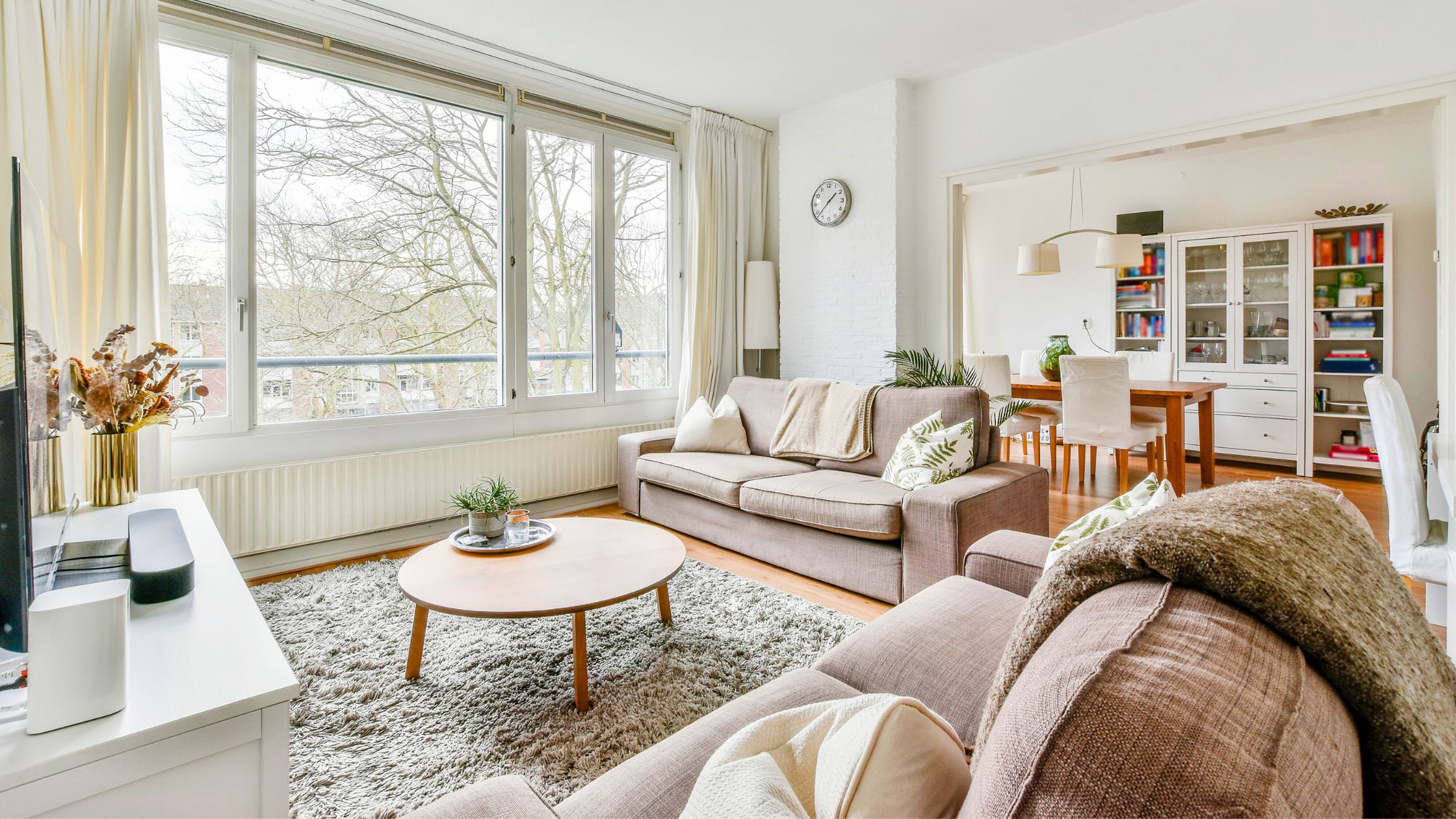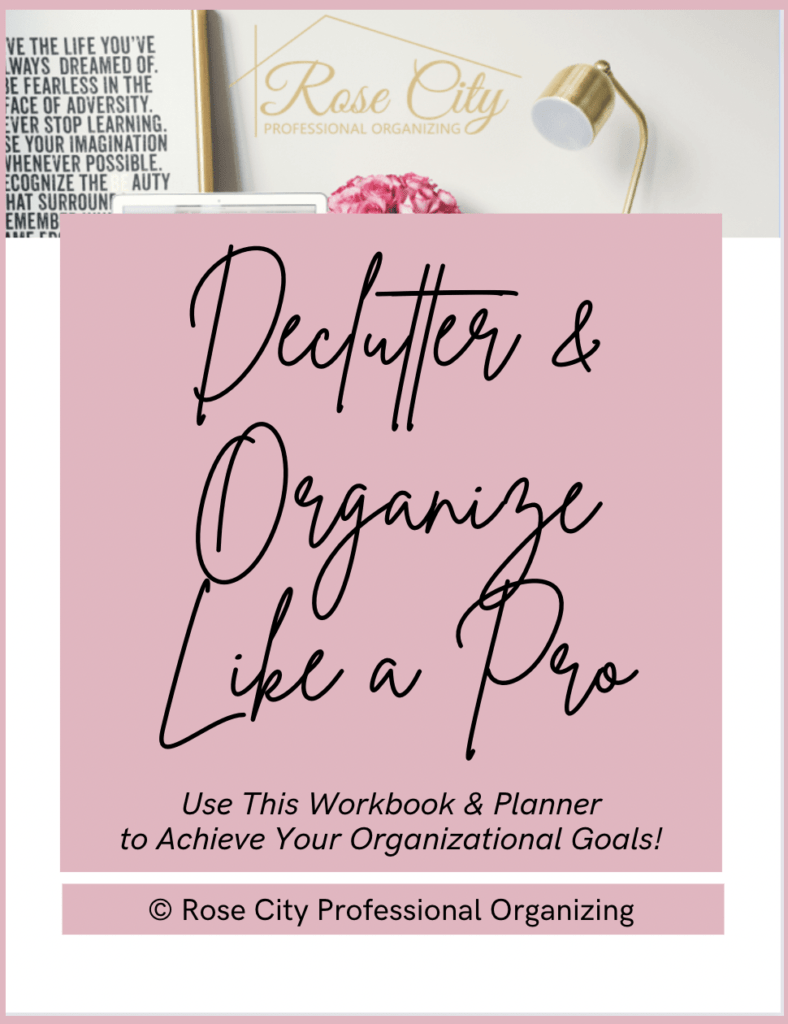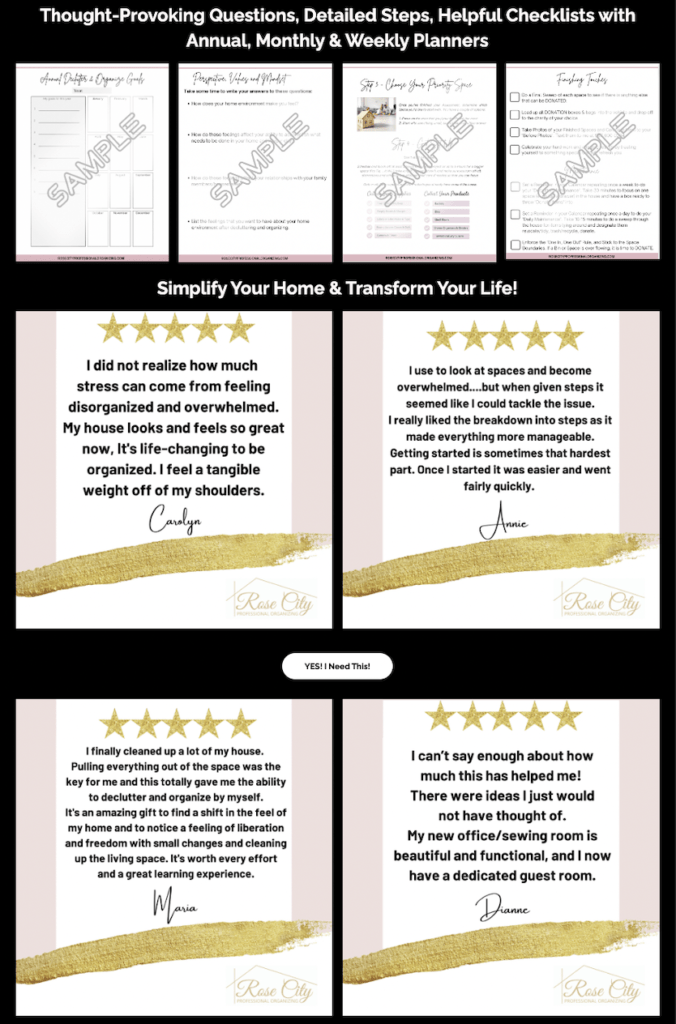
In many ways, the spaces we live in are a reflection of our inner thoughts and emotions. We see this in many instances— when an abstract painter lives in a home painted in bold, vibrant colors, or when a super-logical accountant lives in a minimalist home with functional, high-tech gadgets.
We also see it when it comes to mental health.
Many people become stuck in what professional organizers refer to as the “clutter, depression, anxiety” cycle. They find themselves in a season of stress, and, before long, their home starts to resemble how they feel inside— chaotic, overwhelmed, and confused.
The worst part? Their cluttered house only amplifies their feelings of frustration, depression, and anxiety.
Fortunately, by understanding the mental health benefits of an organized home, and by putting a plan in place to maintain a tidy living environment, the cycle can be broken. Plus, I’m here to help you get there!
January is the perfect time to start fresh and invest in your well-being— so let’s get started!
What is the Link Between Mental Health and Home Organization?
When we examine the psychology of organizing your home, its benefits become more and more clear. There’s substantial evidence that shows even light tidying can have a positive impact on how we feel.
Here are the top 3 effects of home organization on mental health:
1. Boosts Self-Esteem
One study found that 65% of Americans experienced low self-esteem when their homes were cluttered. This proves the condition of our living environment directly affects how we feel about ourselves. Tidying and decluttering your home, even just for 20 minutes a day, can provide a sense of accomplishment and prevent negative self-talk— which ultimately leads to depression and overwhelm.
2. Improves Relaxation
Did you know 80% of people say they feel more relaxed in a neat and orderly home? If you’ve been struggling to unwind, a cluttered house could be the culprit. It may seem like a lot of work at first, but eliminating items you no longer need and implementing better storage solutions definitely pays off in the long run in when it comes to peace of mind.
3. Contributes to Healthier Eating
Yes, it’s true! Studies have linked cluttered homes to a higher rate of obesity. This could be because high stress levels often trigger emotional eating habits, or because a messy kitchen makes it difficult to prepare healthy, nutritious meals at home. Either way, statistics like this one show how important home organization is not just for our mental health but for our physical health too.
5 Ways to Improve Mental Health Through Organization
1. Sort, File, and Toss Paperwork on a Daily Basis
Discard unnecessary items, file important documents promptly, and keep surfaces clear of paper clutter. The more paperwork piles up, the more daunting it is to deal with when you can no longer ignore it. Plus, it only takes a couple of minutes each day!
2. Keep a Monthly Donation Box
One way to minimize the impact of clutter on mental health is to put a strategy in place for eliminating unnecessary items as they accumulate. Remember, decluttering doesn’t have to be a project! It can be a lifestyle change.
Place a plastic bin in a convenient location where you’ll see it everyday, like in your mudroom or pantry, and any time you find an item in your home you don’t really want or need, place it in the bin. Before you know it, you’ll have a full container you can give to someone who will appreciate it!
3. Curate Your Closet With Care
Primary closets are one of the top clutter zones in any house. They become catch-all zones, not just for clothing and accessories, but for sentimental keepsakes, gifts you never got around to using, or decor items you no longer need.
A mindful approach to shopping and filling your main closet goes a long way. Before buying a new piece of clothing, ask yourself whether or not it adds value to your wardrobe and be realistic about how often you’ll wear it. Only make a purchase if the item passes the test.
It’s also smart to use a one-in, one-out rule in this area of your home. If you buy a new piece of clothing, donate another piece to make space for it. It stops your closet from getting to a point of overflow!
Last but not least, try to use your closet for storing clothing and accessories only. If you must store other items, organize them into clear plastic bins and label each one for easy identification.
The goal is to reduce the frustration of trying to get dressed each morning in a chaotic space. The more tidy your primary closet is, the easier it is to start your day feeling calm and in control.
4. Make Your Bed Every Day and Wash Your Sheets Weekly
This may seem a little excessive at first, but there’s actually science behind this! If you’ve been curious about the connection between mental health and home organization, you may be surprised to know that 62% of people who don’t make their bed each day say they feel unhappy.
Beyond that, people who do make their bed every morning are 34% more productive than those who don’t.
These stats show how simple daily practices can have a significant impact on how we feel and function throughout the day. And since we also know 75% of people get a better quality of sleep when their bedding is freshly laundered, washing your sheets weekly and making your bed every day is one of the best home organizing routines you for improving mental health.
5. Keep Countertops (And Other Surfaces) Clutter-Free
Visual clutter contributes to feelings of overwhelm and anxiety. The more clutter you can see, the more difficult it’ll be to feel relaxed in your own home. The problem? A whopping 47% of people have clutter-induced anxiety but 33% say they have no idea how to reduce clutter in their homes.
I’ve found that one of the best approaches to reclaiming a sense of peace in your living space is to focus on surfaces first. Kitchen countertops, coffee tables, dining tables, etc often become littered with paperwork, dirty dishes, small appliances, and other items— making your home less functional and ultimately more frustrating to look at.
Storing small appliances in a pantry or in lower kitchen cabinets is a great place to start. It can also help to lay a blanket down in your living room and then place ALL the clutter from various surfaces in your home onto the blanket. Then go through each item and determine if you want to keep it, donate it, or throw it away. If you decide to keep it, find a designated place to store it that’s out of sight.
How We Can Help
As a seasoned professional organizer, I have not only helped thousands of clients transform their living spaces, but I’ve educated audiences on how to improve mental health through organization.
Whether it’s a keynote speaking opportunity or coaching a client in a one-on-one session, I’m passionate about helping people experience and embrace the sense of calm that comes from a tidy, optimized living space.
Each one of the professional organizers on my team shares this passion, and together we make it easier for clients to enjoy a happier, healthier, and clutter-free life.
Are you ready to use the connection between mental health and home organization to your advantage? It all starts with a free home assessment. From there, we’ll put a personalized plan in place to reclaim your space (and your serenity).
Because when your space reflects your best self, you become your best self!



